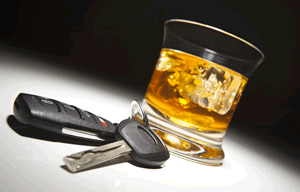Wash-out period
What does Wash-out period mean?
It is illegal in every state to operate a motorized vehicle with a blood alcohol concentration (BAC) of 0.08% or higher. Drivers whose BAC is at or above the illegal limit can be arrested for DUI, as well as those who have a BAC of any level and are unable to safely operate their vehicle.
But what happens when a driver is arrested a second or third time for a DUI within a specified time period? Does the state consider it their first, second, or third DUI?
State laws determine how long a person’s previous DUI convictions can be used to enhance current DUI charges and penalties. This time is referred to as the “wash-out” or “look back period,” and the time varies based on state laws. For example, some states allow for a five year wash-out period while other states allow for ten years or more.
Wash-out period by state
As mentioned above, a state’s wash-out period will be determined by state law. If you are arrested for DUI and this is your second or third offense, you can review your state’s law or talk to a DUI lawyer for more information about whether you will be charged with a first or second DUI.
The wash-out period will generally begin on the date of the DUI arrest, not on the conviction date. For example, in the state of Texas, which has a wash-out period of ten years, if you are arrested on Jan. 10, 2002, and arrested again in March of 2012, the second drunk driving offense would be treated as the first because the ten year look-back period would have ended.
Why does the wash-out period matter?
Penalties for all DUI convictions can be severe, but every subsequent DUI conviction will have more severe penalties, higher fines, and longer potential jail sentences then previous DUI convictions.
For example, in the state of New York, if you are arrested for drunken driving you may be charged with a driving while impaired by alcohol. You may also be charged with DWI (driving while intoxicated), which is a misdemeanor.
If, however, you are arrested a second time for DWI within 10 years (New York’s wash-out period), you can be charged with Class D Felony and receive jail time, probation, license revocation, and fines.
Due to the changing laws and regulations concerning state’s DUI laws, if you are arrested for DUI for a second time, it is important to discuss your case with a DUI lawyer. Wash-out laws have been updated over the last 10 years in different states due to social pressure. For example, in 2007, in Michigan, the 10 wash-out period was eliminated under a new law called Heidi’s Law.
In this case a young girl was killed by a driver with a history of DUI, but due to the wash-out laws in the state was considered a first-time offender. This fact so enraged the citizens of the state they updated the state’s wash-out laws.







